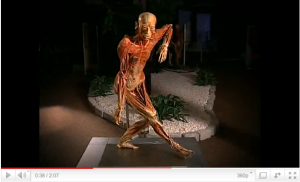
Research shows a correlation between parent engagement and student success, especially in low-income families where many parents did not attend college. When parents are involved, students gain:
·      Higher grades and test scores
·      Better attendance and homework completion
·      More positive attitudes and behavior
·      Higher graduation rates and greater enrollment in post-secondary education
In Florida, State Rep. Kelli Stargel is trying to hold parents accountable for their children’s education by passing the Parent Involvement and Accountability in Public Schools bill she filed earlier this January. If the bill passes, parents would be graded on their participation as satisfactory, needs improvement, and unsatisfactory in the following areas:
– Parental response to requests for conferences or communication.
– The student’s completion of homework and preparation for tests.
– The student’s physical preparation for school that has an effect on mental preparation.
– The frequency of the student’s absence and tardiness.
But is grading a parent the best way to get them involved? Those who oppose the bill are mostly afraid that this bill would allow the government to tell individuals how to parent. Will a poor parenting grade really open the doors to teacher/parent communication or instead increase the distance? In an interview by The Ledger, Marianne Capoziello, president of the Polk Education Association said, “I’m not sure a teacher assigning a grade to a parent is a useful tool,” she said. “I think the dialogue that Stargel is trying to open up about the importance of parent involvement in schools is an imperative dialogue to have. I’m just not sure assigning a grade is a way to do that.”
In Denver Public Schools, the Office of Parent Engagement selected LifeBound to pilot a series of Parents as Coaches trainings throughout the 2011 school year, and worked hand-in-hand on each of four parent sessions.
“I’m excited about implementing this goal setting with my teenager,†said Lilian Pacheco, parent of a Grant Middle School student, after LifeBound’s current DPS parent session in goal setting skills.
LifeBound’s parent engagement work at DPS focuses on topics relating to elementary school through high school, including:
·      Setting Expectations and Limits: Establishing Early Habits of Success, Promoting Respective and Cooperative Behavior, and Healthy Homework Habits: Helping Kids Develop Perseverance for Elementary Students
·      Avoiding Adolescence Substance Abuse: Give Your Child The Tools To Say No, Managing Peer Pressure: Critical Thinking Skills to Evaluate Good Risks and Bad Risks, and Identifying Signs of Trouble with Teens: Academic, Emotional, and Social Issues for Middle School Students
·      Gifts and Talents for Teenagers: Help Your Kids Understand Their Strengths, College and Career Exploration: Help Your Child Plan for the Future, and Coaching Skills for High School Students.
To learn more about parent involvement programs through LifeBound, email your inquiries to contact@lifebound.com.
Share this Article with Your Friends:
![By Kit from Pittsburgh, USA (Grads Absorb the News) [CC-BY-2.0 (www.creativecommons.org/licenses/by/2.0)], via Wikimedia Commons](http://upload.wikimedia.org/wikipedia/commons/3/3a/College_graduate_students.jpg)










![By Paul Stevenson (http://www.flickr.com/photos/pss/2252443224/) [CC-BY-2.0 (www.creativecommons.org/licenses/by/2.0)], via Wikimedia Commons](http://upload.wikimedia.org/wikipedia/commons/0/0e/Koerperwelten02.jpg)




![By Gnarlycraig (Own work) [Public domain], via Wikimedia Commons](http://upload.wikimedia.org/wikipedia/commons/b/b4/Studying.jpg)
